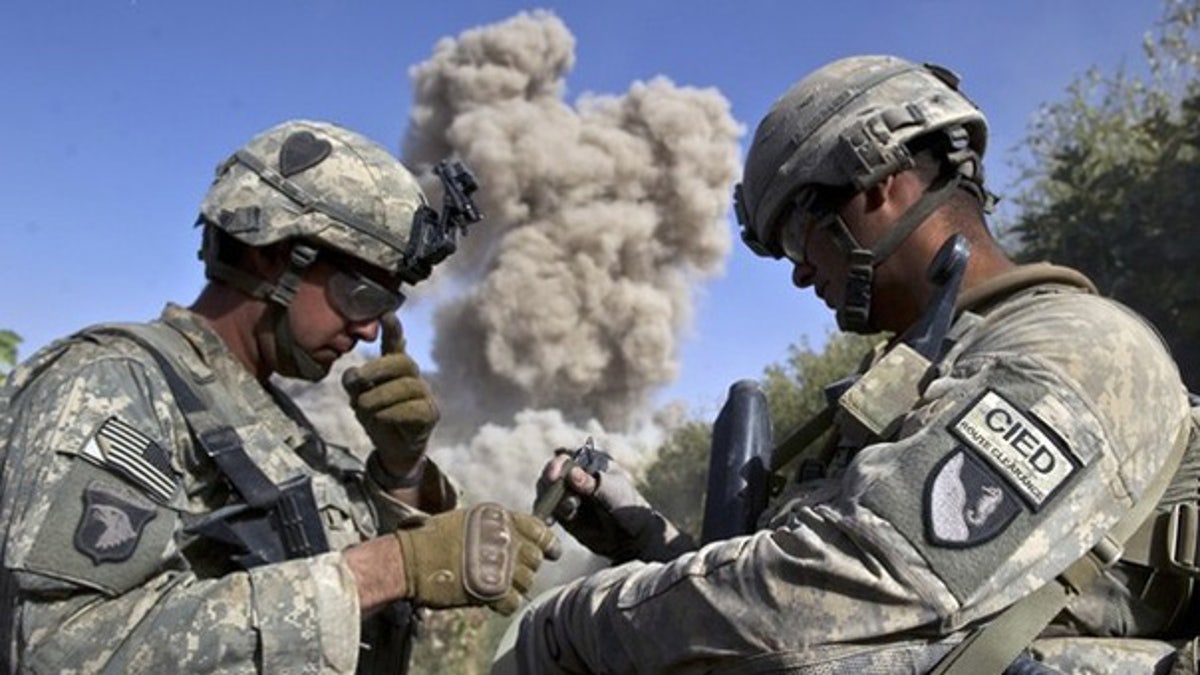
Oct. 25: U.S. soldiers blow up a building they believe the Taliban may use in Kandahar, Afghanistan. (AFP)
Russia could play a new role in Afghanistan under plans being drawn up between NATO and Moscow -- more than two decades after Soviet troops were forced into a bloody retreat from the country.
Among a range of proposals under consideration Wednesday was the possibility of Russia lending military helicopters to the Afghan Army, training Afghan pilots in Russia and enabling more NATO convoys -- including those with lethal cargo -- to pass across its territory. The plan could also extend to Russia training Afghan security forces outside the country in counternarcotics techniques.
Anders Fogh Rasmussen, the secretary-general of NATO, said he hoped that details of the deal would be agreed at a landmark summit between NATO and Russia in Lisbon on Nov. 20.
“I think there is potential for an expanded cooperation between NATO and Russia as regards Afghanistan,” Rasmussen said Monday. “Russia has a long-term interest in stabilizing the situation in Afghanistan because Russia’s security is also affected by what is going on in Afghanistan, not to speak of the risk of destabilization spreading from Afghanistan to Central Asia and farther."
Rasmussen said he raised the prospect of Russia providing the Afghan Army with helicopters at a meeting in Moscow in December, and the concept was also being discussed between the U.S. and Russia. “I would not exclude that we could facilitate that process within the NATO-Russia Council,” Rasmussen said.
As well as aircraft, Russia could agree to let convoys of NATO weapons and ammunition cross its territory. This would offer an alternative route from Pakistan, where the alliance’s convoys come under regular attack from the Taliban.
The NATO-Russia summit could also lead to Moscow being invited to cooperate with the alliance on the controversial issue of missile defense. “The summit will represent a new start in the relationship between NATO and Russia,” Rasmussen said. “Cooperation on missile defense will provide us with a very strong framework for developing a true EuroAtlantic security architecture.”
The idea of Moscow taking a more active role would be hugely emotive in Afghanistan, where more than one million civilians lost their lives after the Soviet invasion in 1979. NATO officials appeared unconcerned at the potential psychological impact, noting that Russian-manufactured helicopters were already in use over Afghan soil.
